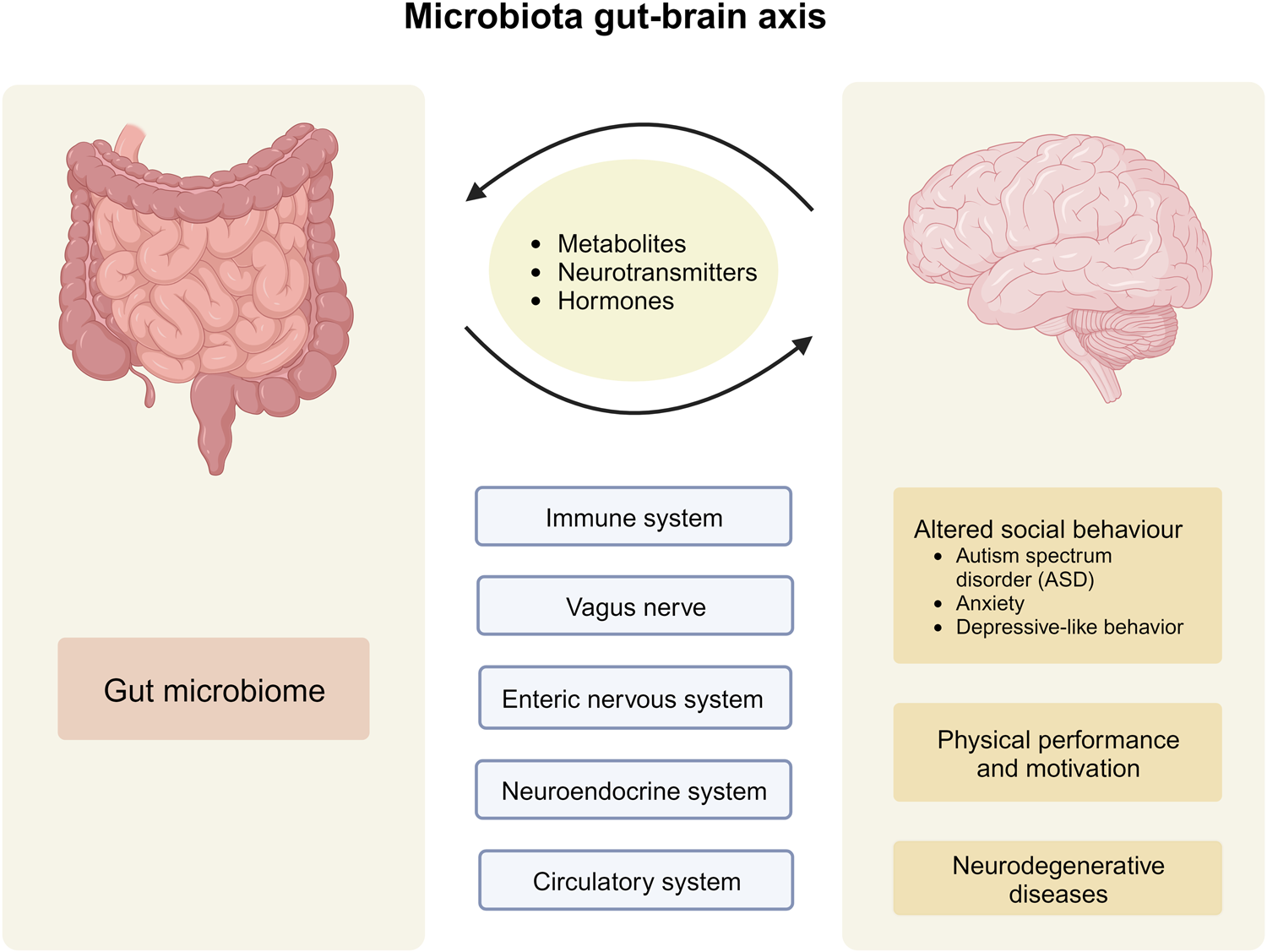Gut-Brain Connection: Key Insights into Neurodegenerative Diseases
The human gastrointestinal tract plays host to a rich ecosystem of microbes, collectively known as the gut microbiome. Recent advancements in sequencing technologies have deepened our understanding of the pivotal role this microbial community plays in human biology. From health maintenance to disease development, the gut microbiome's influence spans across various facets of human health.

The microbiota–gut–brain axis. The bidirectional communication between the gut microbiome and the brain is mediated by the immune system, vagus nerve, enteric nervous system, neuroendocrine system, and circulatory system. Alterations in gut microbiota have been linked to the development of autism spectrum disorders, anxiety, depressive-like behavior, impaired physical performance, and motivation, as well as neurodegenerative diseases. This figure was created with BioRender (https://biorender.com/). Credits: Jian Sheng Loh et al., 2024.
In a recent review published in the Signal Transduction and Targeted Therapy Journal, researchers delve into the intricate relationship between the gut microbiome and the central nervous system, termed the "microbiota-gut-brain axis". This bidirectional communication pathway has emerged as a crucial regulator of glial functions, offering promising avenues for mitigating the onset and progression of neurodegenerative diseases.
The review meticulously explores the mechanisms underlying the microbiota-gut-brain axis in neurodegenerative diseases. It elucidates how the gut microbiota communicates with key glial cells — microglia, astrocytes, and oligodendrocytes — during both healthy states and neurodegenerative conditions. Employing a metabolite-centric approach, the paper highlights the role of microbial metabolites, neurotransmitters, and gut hormones in modulating glial function and neurodegeneration.
Furthermore, the review investigates potential therapeutic targets along the microbiota-gut-brain axis, including the intestinal barrier, blood-brain barrier, meninges, and peripheral immune system. By addressing glial dysfunction at these interfaces, researchers aim to disrupt the pathological cascade associated with neurodegenerative diseases.
The paper wraps up by evaluating the preclinical and clinical evidence surrounding interventions targeting the gut microbiome, such as probiotics, prebiotics, and fecal microbiota transplantation, in the context of neurodegenerative diseases. A comprehensive understanding of the microbiota-gut-brain axis promises to catalyze the development of innovative therapeutic strategies for combating neurodegeneration, offering hope for millions affected by these debilitating conditions.
Targeting Microbiota 2024 will highlight the latest advancements in microbiota-gut-brain axis. Don't miss the chance to join the 11th ISM World Congress on October 14-15, 2024 at Corinthia Palace Malta!
Copyright: International Society of Microbiota
























































